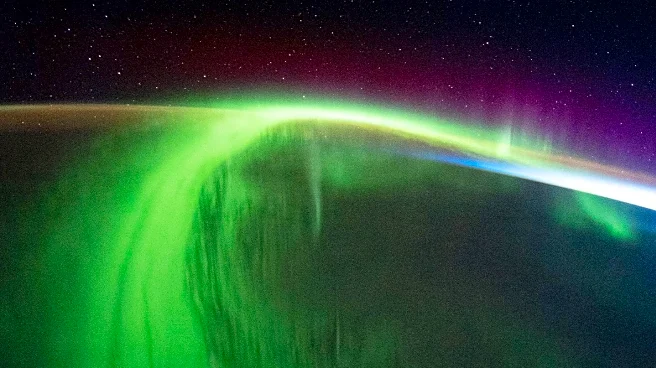What's Happening?
Throughout history, different cultures have interpreted the aurora phenomena in various ways, from creation myths to political omens. During the Jacobite Rebellion in England in 1716, strange lights were
seen in the night skies, described as 'pure flame' and 'shower of blood.' These visions were interpreted differently based on political and religious leanings, with some viewing them as omens of the fate of nations and the fall of kingdoms. The aurora has been a source of fascination and speculation, with interpretations influenced by cultural beliefs and historical contexts.
Why It's Important?
The historical interpretations of aurora phenomena highlight the intersection of science, culture, and politics. Understanding these interpretations provides insight into how natural events have been perceived and used to influence societal beliefs and actions. The aurora continues to be a subject of interest, with modern myths and tourism practices reflecting its enduring appeal. The study of aurora phenomena contributes to our understanding of atmospheric science and cultural history.
Beyond the Headlines
Modern myths surrounding the aurora, such as Japanese tourists traveling to Scandinavia to conceive under the Northern Lights, demonstrate the ongoing cultural significance and commercialization of natural phenomena. These myths reflect the blending of scientific understanding with cultural narratives, shaping perceptions and behaviors.








